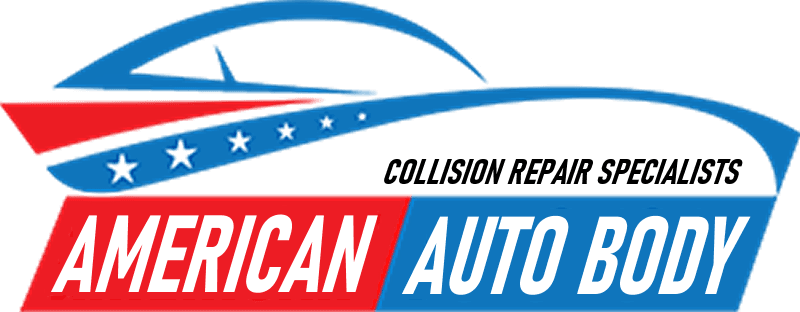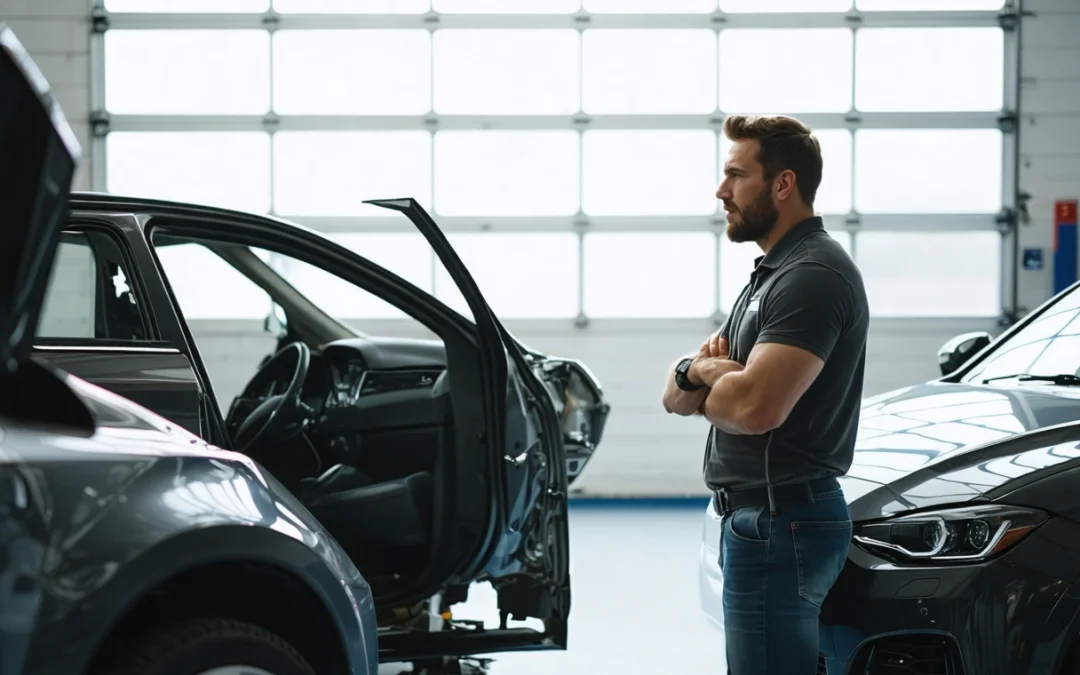How to Choose a Trustworthy Auto Body Shop for Your Collision Repair
Getting into a car accident is an unsettling experience, often followed by stress, confusion, and a barrage of decisions to make. One of the most critical choices you’ll face is where to take your vehicle for collision repair. Selecting a reliable auto body shop is essential to ensure your car is repaired to its pre-accident condition, maintains its safety features, and retains its value. In this comprehensive guide, we will walk you through everything you need to know about choosing a trustworthy auto body shop for your collision repair needs.
From understanding what separates a reputable shop from the rest, to knowing which questions to ask and what red flags to watch out for, this article will provide you with the knowledge to make an informed decision. Whether you are dealing with minor dents or major collision damage, the information provided here will empower you to protect your investment and your safety.
Why the Right Auto Body Shop Matters
Your car is more than just a mode of transportation; it is a significant investment, and for many, a source of pride and convenience. When an accident occurs, the quality of the repair work performed can have far-reaching implications for your vehicle’s safety, appearance, and resale value. Poor quality repairs can lead to ongoing issues, voided warranties, and even compromise your safety on the road.
Choosing a reputable auto body shop ensures that certified technicians use the correct techniques, follow manufacturer guidelines, and use quality parts. This not only helps restore your vehicle’s structural integrity but also preserves important features like airbag deployment and crumple zones. Additionally, a trustworthy shop will help you navigate the insurance process, offer warranties, and provide transparent communication throughout the repair.
Researching Auto Body Shops in Your Area
The search for a trustworthy auto body shop should begin with thorough research. Start by compiling a list of potential shops in your area. Utilize online resources, personal recommendations, and industry directories to get a sense of your options. One valuable resource for finding reputable shops is the CARFAX guide to selecting a good auto body shop, which offers excellent tips.

Online reviews, such as those found on Google, Yelp, and the Better Business Bureau, can provide insight into other customers’ experiences. Pay close attention to comments about the quality of work, customer service, and whether the shop adhered to estimated costs and timelines. Be wary of shops with consistently poor reviews or patterns of complaints.
In addition to online research, ask friends, family, and neighbors about their experiences with local shops. Personal recommendations often reveal the best-kept secrets in your community. Remember to look for shops that specialize in your vehicle’s make and model, as these may have technicians with specific expertise and access to original manufacturer parts.
Certifications and Credentials to Look For
One of the most critical indicators of a reputable auto body shop is its set of certifications and credentials. These certifications demonstrate that the shop adheres to high industry standards and that its technicians have undergone rigorous training. Look for shops with technicians certified by the National Institute for Automotive Service Excellence (ASE) or the Inter-Industry Conference on Auto Collision Repair (I-CAR).
Manufacturer certifications are another valuable credential. Automakers like Ford, Honda, and Toyota often certify specific repair facilities to work on their vehicles. These certified shops have access to proprietary tools, repair procedures, and genuine parts, ensuring that the repair meets factory standards. Always ask to see proof of certifications and ongoing training, as technology and repair techniques evolve rapidly.
Additionally, check if the shop belongs to professional organizations like the Society of Collision Repair Specialists (SCRS) or National Auto Body Council (NABC). Membership in these groups indicates a commitment to ethical practices and ongoing education in collision repair.
Evaluating the Shop’s Equipment and Facility
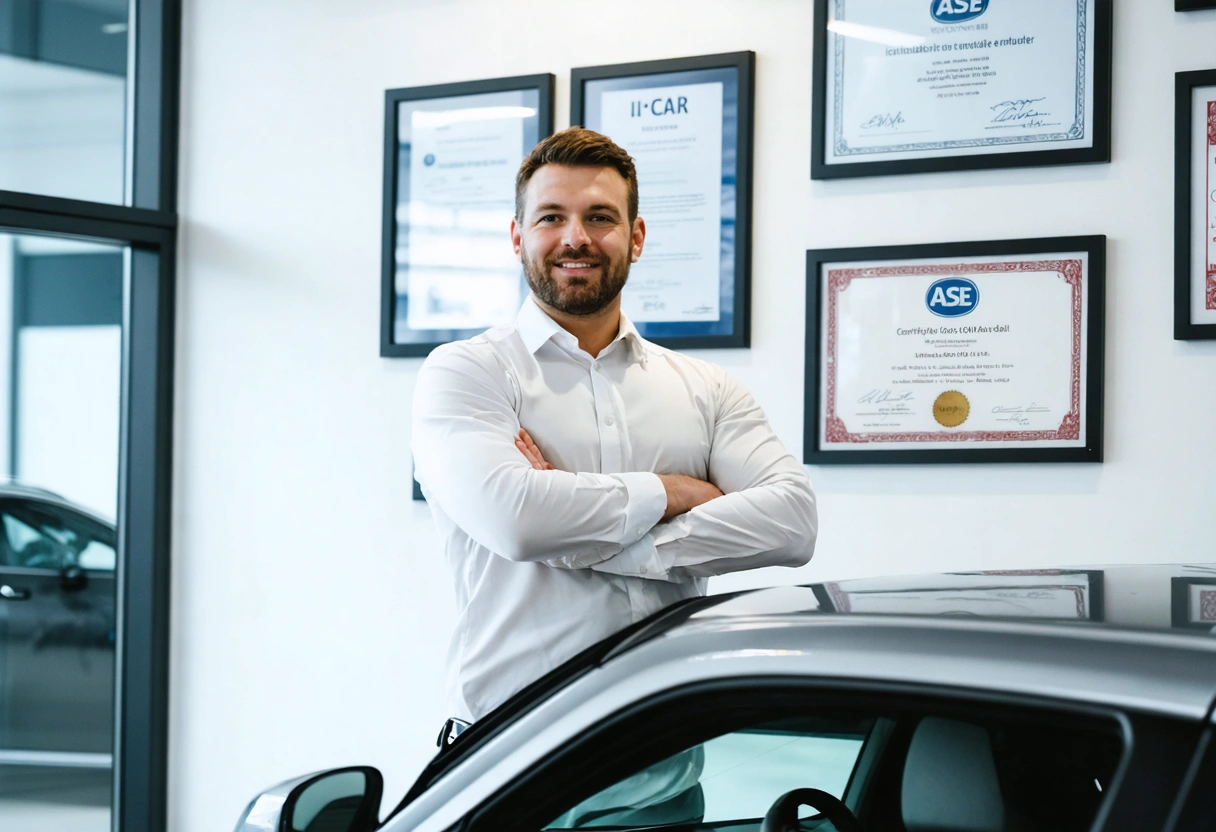
Modern vehicles incorporate advanced materials, electronics, and safety systems. Repairing these vehicles requires specialized tools, equipment, and a clean, organized facility. When visiting an auto body shop, observe the overall cleanliness and organization of the workspace. A well-maintained shop reflects professionalism and attention to detail.
Ask about the shop’s equipment and whether it is up-to-date with current technology. For example, proper frame alignment machines, computerized paint matching systems, and welding equipment are essential for high-quality repairs. Some shops may also use advanced diagnostic tools to reset electronic systems and sensors after a collision, ensuring your vehicle operates as intended.
If possible, request a tour of the facility. Reputable shops are usually proud to showcase their workspace and explain their processes. This also gives you a chance to observe how vehicles are handled throughout the repair process, giving you confidence in their capabilities.
Understanding the Repair Process and Warranty
A reputable auto body shop should provide a clear, detailed explanation of the repair process. From the initial estimate to the completion of repairs, transparency is key. Ask the shop to walk you through the steps involved, including disassembly, damage assessment, parts ordering, structural repairs, paintwork, and reassembly. A good shop will keep you informed at every stage and notify you of any unexpected findings or delays.
Warranties are a critical aspect of collision repair. Reliable shops stand behind their work with written warranties that cover labor, materials, and paint. The length and scope of warranties vary, but a standard warranty should last at least one year. Be cautious of shops that offer no warranty or only a verbal guarantee. Request a copy of the warranty in writing and make sure you understand what is covered and for how long.
For a deeper dive into the collision repair process, you can consult the Consumer Reports guide to auto body repair, which provides invaluable information about what to expect and how to protect yourself as a consumer.
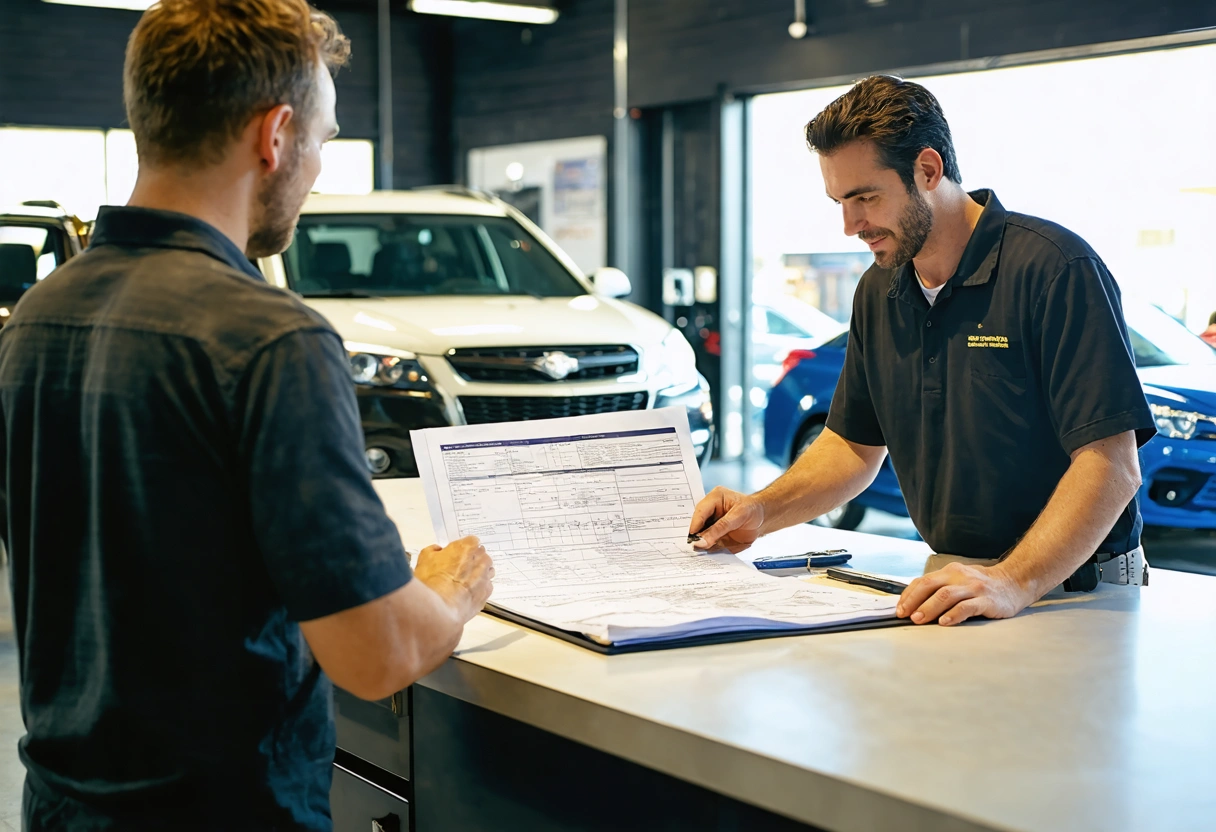
Questions to Ask Before Committing
Before handing over your keys, it is essential to ask the right questions. The answers will help you gauge the shop’s professionalism and transparency. Consider the following:
- Are your technicians certified, and do they receive ongoing training?
- Will you use original equipment manufacturer (OEM) parts, or aftermarket alternatives?
- Can you provide a written estimate and explain any variances?
- What kind of warranty do you offer on repairs and paintwork?
- How do you handle supplemental damage found during repairs?
- Will you communicate regularly about the status of the repair?
- Do you have insurance coverage for vehicles while they are in your shop?
The answers to these questions can reveal a lot about the shop’s policies and commitment to quality. For more guidance, the NerdWallet guide to choosing an auto body shop offers a comprehensive list of questions and red flags to consider.
Comparing Estimates and Understanding Costs
When it comes to collision repair, price should not be the sole deciding factor. However, comparing estimates from multiple shops can help you avoid being overcharged or receiving subpar work. Request detailed written estimates that outline labor, parts, materials, and any additional fees. Be wary of extremely low estimates, as these may indicate the use of inferior parts, shortcuts in labor, or hidden costs that appear later in the process.
It’s important to understand the difference between OEM and aftermarket parts, as well as the labor rates for certified versus non-certified technicians. Some insurance policies may dictate the use of certain parts or shops, but you have the right to choose where your vehicle is repaired. Always clarify what is included in the estimate and ask for explanations of any unfamiliar terms or line items.
For an in-depth look at how auto body repair estimates are calculated, check out the Bankrate article on auto body shop estimates, which breaks down the factors affecting repair costs.

Insurance Company Recommendations and Your Rights
After a collision, your insurance company may recommend or require you to use a specific network of repair shops. While these shops may offer convenience and expedited claims processing, you are not obligated to use their suggestions. Consumer protection laws in most states allow you to select your preferred repair facility, regardless of insurance recommendations.
It is essential to know your rights and understand how direct repair programs (DRPs) work. While some DRP shops provide excellent service, others may cut corners to reduce costs for the insurer. Always prioritize quality, transparency, and your comfort level with the shop. If an insurance representative pressures you to choose a particular shop or discourages you from using a shop you trust, report the behavior and seek guidance from your state’s insurance regulator.
Red Flags and Warning Signs to Watch For
Not all auto body shops operate with integrity. To protect yourself from substandard repairs or unscrupulous practices, be on the lookout for warning signs such as:
- Unwillingness to provide a written estimate or warranty
- Lack of certifications or proof of technician training
- Pressure to pay upfront before repairs begin
- Disorganized or dirty facility
- Negative online reviews and unresolved complaints
- Unclear communication and evasive answers to your questions
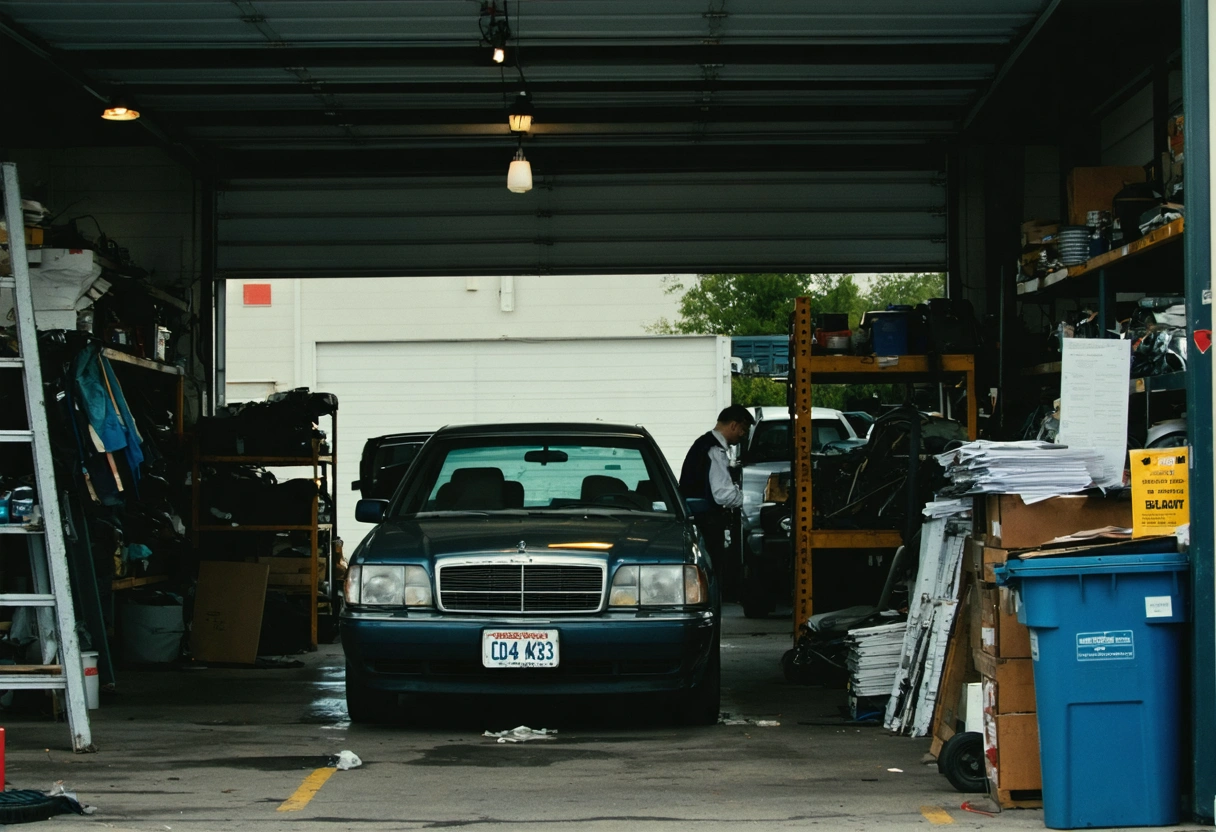
If you encounter any of these red flags, consider seeking another shop. Remember, your safety and satisfaction should always come first. For more on recognizing and avoiding scams, the Angi guide to avoiding auto repair scams offers helpful advice and examples.
The Importance of Communication and Customer Service
Excellent communication and customer service are hallmarks of a trustworthy auto body shop. From your initial inquiry to the delivery of your repaired vehicle, the staff should be courteous, knowledgeable, and responsive. A good shop will answer your questions thoroughly, keep you updated on progress, and promptly address any concerns that arise.
Clear communication extends to paperwork as well. Ensure you receive all estimates, invoices, and warranty documents in writing. If the shop offers additional services, such as rental car assistance or help with insurance claims, this can make the repair process smoother and less stressful. Ultimately, a shop that values customer satisfaction will go the extra mile to earn your trust and repeat business.
Making the Right Choice for Your Collision Repair
Choosing the right auto body shop for your collision repair is a crucial decision that impacts your vehicle’s safety, value, and your peace of mind. By conducting thorough research, verifying certifications, evaluating facilities, and asking the right questions, you can confidently select a shop that meets your needs and upholds the highest standards of quality.
Remember to trust your instincts, prioritize transparency and communication, and never compromise on safety for the sake of convenience or cost. With the knowledge and resources provided in this guide, you are well-equipped to navigate the collision repair process and ensure your car receives the expert care it deserves. Your diligence today will pay off in the form of a safe, reliable, and beautifully restored vehicle for years to come.
Need help with How to Choose a Trustworthy Auto Body Shop for Your Collision Repair?
